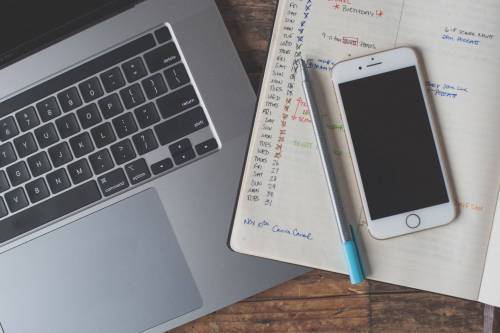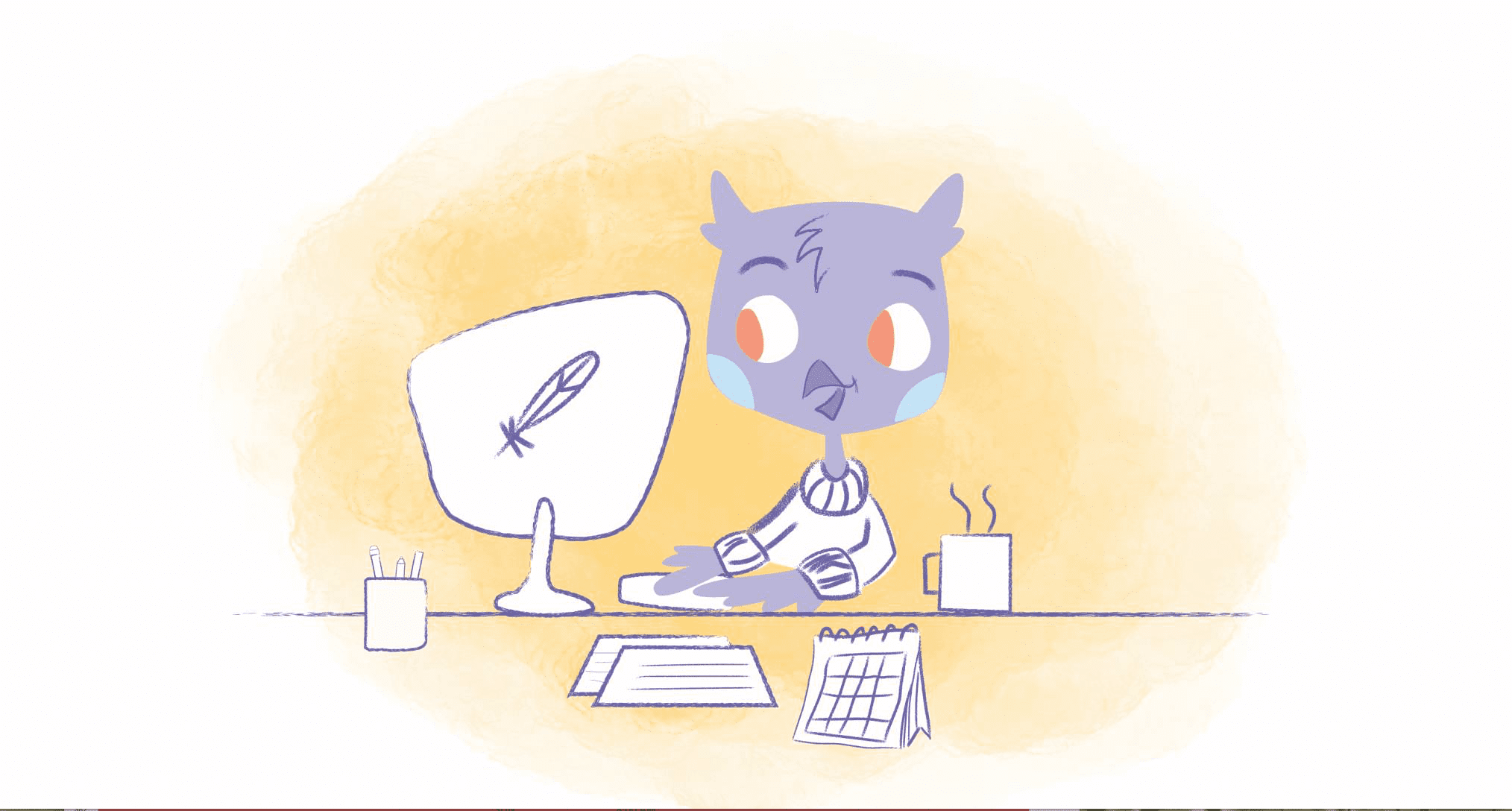

There are you trying to enjoy your Sunday. But, since the weekend is behind you, you begin to map out your upcoming week. Suddenly, there are a million racing thoughts going through your head.
On Monday night, your kids have a soccer game. There’s a meeting with your team on Tuesday morning. Wednesday? There’s a project deadline, along with a dentist appointment. On Thursday, there’s lunch with an investor and parent-teacher conferences. So even though you’re exhausted by Friday, you need to review progress reports and schedule dinner reservations for the weekend.
Take a moment to breathe. Everything is going to be alright.
Our calendars are constantly filled with meetings, events, special occasions, assignments, and tests, even before the week has begun. Therefore, keeping your schedule organized is essential to your success when pursuing your goals. And the simplest, most effective, and inexpensive way to achieve this is by utilizing a calendar.
In short, regardless of whether you use a paper-and-pen notebook or an online calendar, there’s no debate about it. You need a Calendar. Period.
Promotes accountability.
“Did you know that writing down your goals will make you 1.4 times more likely to succeed?” asks Howie Jones in a previous Calendar. “One reason for this is because writing lets your brain know what to focus on.” As a result, it becomes easier to remember.
Moreover, writing clarifies your goals and limits exceptions. “Also, written goals serve as constant reminders, lets you review your progress, and gives you the satisfaction of crossing items off your to-do list,” he adds.
What if you aren’t using a daily planner or wall calendar? Even though adding entries to your online Calendar may not be effective, it still helps you to schedule a specific meeting or doctor’s appointment. As well as giving you the chance to meet up with friends or accomplish particular tasks on your to-do list, it allows you to carve out time for family time.
Additionally, with an online calendar or app, you can set reminders. As a result, this will ensure that you won’t run late for a meeting, miss a deadline, or show up late to your kid’s soccer game.
And, speaking of accountability, with a calendar, you’ll finally achieve your goals. This is clutch since about 70 percent of people don’t reach their goals. But, how can a calendar help you reach your goals? While you can set realistic deadlines for mico-goals instead of setting ambitious and vague goals that take you longer to complete than anticipated. Additionally, you can use your Calendar to track your progress so that you’ll remain motivated.
Helps with prioritizing.
I get it. You have a never-ending list of tasks you need to get to. But, here’s the thing. Not every item on your to-do list is a priority.
Putting items on your Calendar allows us to choose which tasks are essential and which are not. By filtering out the unnecessary, we can make room for the important stuff.
But don’t just take my word for it. According to experts like Daniel Markovitz and Kevin Kruse, you should live by your Calendar instead of making lists. To them, lists give us too many options and fail to provide context, making it difficult to tell what is urgent and what is essential. They also don’t take time into account. And, lists can sway from tacking more challenging and complex tasks.
Aids in record keeping.
It’s also useful to maintain an up-to-date calendar for finding information about past events. Knowing when certain things, such as oil changes, quarterly reviews, doctor’s appointments, pet grooming, annual conferences, ensure that you won’t overlook them. It can also remind you of your child’s school schedule or keep track of your habits.
As if that weren’t enough, you could review past events to know when to book a team meeting, who to invite, and what should be discussed. You may even refer to your Calendar if there are any issues like billing disagreements or getting audited.
And, most importantly, at least for me, this can help you plan out your year in advance. That may sound excessive. But, I firmly believe that this is the key to time management.
Addresses procrastination.
Are you prone to procrastination? For some, this might motivate them to kick it into high gear. However, procrastination can halt productivity, impede innovation, limit opportunities, and strain relationships. And it can also cause anxiety and depression.
Will a calendar alone completely absolve you of procrastination? Most likely not. Nonetheless, having a specific date and time set aside for our tasks gives us a sense of urgency.
What’s more, this motivates us to get to work on time by eliminating excuses. For example, if you must complete a task by noon, then you can politely decline your co-worker’s invitation to join them for a mid-morning coffee break.
Provides structure.
Most of us thrive when we have a structured routine. And that’s precisely what Calendar provides us. For example;
- Begin your day with a ritual. Get in the habit of waking up early and starting your day on the right foot by establishing a morning routine. Exercise, clearing out your inbox, reading, and planning your day are all excellent ideas for a morning ritual.
- You should eat frogs in the morning. Not literally. Your “frog” is actually your most important task of the day. According to studies, our alertness and concentration are at their peak two hours after we wake up. Therefore, your morning should be used to tackle your main priority for the day.
- Make the most of your afternoons by performing soft tasks and doing physical activities. Throughout the day, our energy levels decrease. Because of this, you should spend your afternoons on physical activities, meetings, and organizing your emails instead of working on tasks that require a lot of mental energy.
- Take advantage of your commute by brainstorming. Chances are, you’ll be exhausted at the end of the workday. However, since you are less likely to be able to make connections in your brain, this is an excellent time to come up with new ideas.
- Spend your evenings relaxing. The best way to recharge for the day ahead is to relax after dinner. The best ways to spend your evenings are to go for a walk, read, meditate, write, and check your Calendar.
Of course, you can use your Calendar to schedule breaks and fun activities to help you unwind and recharge.
Protects your mental and physical health.
By noting due dates, tasks, and special events on your Calendar, you will be able to free your mind from clutter. In addition, your Calendar is a good place to keep track of things, as you frequently check it. In turn, this can reduce stress and anxiety.
A calendar also “helps your physical health by helping you track things like diet and exercise,” writes Barbara Markway, Ph.D. for Psychology Today. Also, “you can schedule regular doctor and dentist appointments, and make sure you are getting enough fresh air and vitamin D by scheduling days spent outdoors.”
Prevents conflicts and establishes boundaries.
We all know how frustrating it is when we accept an invitation to an event, only to find out that we already have obligations during that time. Or the feeling of embarrassment we feel when we’ve double-booked ourselves into a corner. In either situation, someone will feel let down, which may also harm your reputation.
Calendars let you see what commitments you have and when you are available. It is easier to plan events or other special occasions when you know your availability. And more importantly, a calendar can assist you in setting boundaries so that you aren’t overextending yourself.
Image Credit: Jessica Lewis; Pexels; Thank you!











John Hall
John Hall is the co-founder of Calendar a scheduling and time management app. He’s also a keynote speaker that you can book at http://www.johnhallspeaking.com.